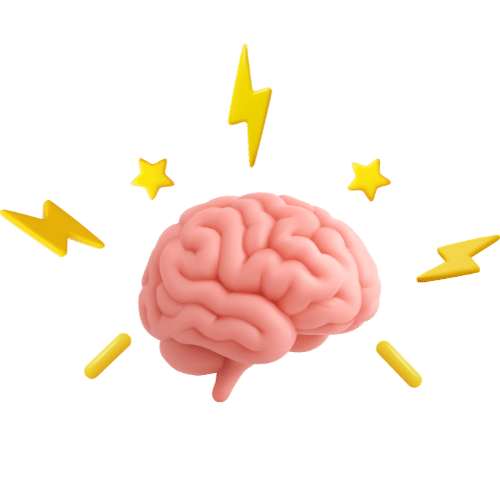Treatment-resistant depression (TRD) refers to a form of major depressive disorder that does not respond to typical treatments such as antidepressant medications, psychotherapy, or a combination of both. How we treat Treatment-Resistant Depression at Bubblegum & Duct Tape Wellness focuses on offering innovative, evidence-based options for individuals who have not found relief through traditional care — and many patients begin with a brief consultation before choosing a care plan — making specialized treatment-resistant depression therapy an essential part of our approach. Through our telehealth support across Oregon, Washington, and Montana, patients can conveniently access these advanced interventions from home, ensuring secure and timely care wherever they are. Our approach provides renewed hope for those still experiencing debilitating symptoms despite multiple treatment attempts, reinforcing the importance of compassionate and comprehensive treatment-resistant depression therapy for long-term well-being.
Ketamine Therapy for Treatment-Resistant Depression
For individuals who have not found relief through traditional antidepressants or therapy, ketamine therapy offers a promising new approach. Unlike standard treatments that can take weeks to show effects, ketamine often provides rapid relief from depressive symptoms—sometimes within hours or days.

Ketamine works by targeting glutamate, a key neurotransmitter in the brain, helping to create new neural connections and restore healthier brain activity. This process can break the cycle of persistent negative thought patterns and provide a sense of clarity and calm.
At Bubblegum & Duct Tape Wellness, ketamine therapy is administered in a safe, supportive environment by experienced professionals who guide you through the process. Many patients report reduced feelings of hopelessness, improved mood, and greater ability to engage in daily life after treatment. Contact our team now↗ to ask your questions and get personalized guidance.
Why Ketamine Therapy?

Rapid relief from depressive symptoms

Effective for patients unresponsive to antidepressants

Resets thought patterns, boosts flexibility

Safe, supervised medical treatment
To begin, reach out through any of the following:
- Call: (844) 966-5349
- Website Contact Form: Submit the contact form on our site.
This brief session is available for patients in Oregon, Washington, Montana, and Arizona.
During this call, you will speak with us and we will:
- Review your symptoms, history, and goals.
- Answer any initial questions you may have.
- Determine whether you need standard psychiatric services, such as medication management or therapy, or might be a good fit for ketamine therapy.
If you proceed with traditional psychiatric care, we’ll schedule your Initial Intake Appointment via secure telehealth.
Before the Initial Intake Appointment
Once your intake is booked, we will send you a set of required Tebra intake forms that must be completed and submitted at least 48 hours before your scheduled session. This allows your provider enough time to review your background and prepare for a meaningful, thorough evaluation.
These forms include:
- Basic patient information & demographics.
- Financial and insurance information.
- Medical information (allergies, current medications, medical history, mental health screening questionnaires, etc.).
- Consent and policy forms (telehealth consent, privacy policies, practice policies, etc.).
Completing these forms ahead of time helps ensure a smooth and efficient visit.
During the Initial Intake Appointment
During your session, your licensed provider will:
- Conduct a detailed mental health evaluation.
- Review your medical and psychiatric history.
- Discuss possible diagnoses.
- Explore medication options, therapy recommendations, and supportive care.
- Create a personalized treatment plan tailored to your needs.
After your intake, you’ll continue with regular telehealth follow-ups, where your provider will:
- Check in on how you’re feeling and how things are progressing.
- Adjust medications or therapeutic approaches as needed.
- Offer guidance and support to help you manage symptoms in a way that fits your life.
- Help you stay aligned with your personal wellness goals.
Service Fees
Transparent pricing for evaluation, therapy, and medication management.
Learn more about treatment-resistant depression from the American Psychiatric Association↗
-
What are the signs that my depression might be treatment-resistant rather than a typical depressive episode?
Treatment-resistant depression (TRD) generally means that your symptoms haven’t improved enough, even after trying at least two antidepressant medications at the right doses and for a long enough period.
Signs that your depression may be treatment-resistant can include:
• You’ve tried multiple medications with limited or short-lived relief
• Symptoms have lasted many months or years despite treatment
• You only feel “slightly better,” but still struggle to function day-to-day
• Your depression quickly returns when a medication is adjusted or stopped
Only a qualified mental health provider can diagnose TRD. During an evaluation, we review your full history, medications, lifestyle, and underlying conditions to help determine whether you may be experiencing treatment-resistant depression and what to do next. -
What underlying conditions or risk factors increase the chance of developing treatment-resistant depression?
Several factors can make depression harder to treat with standard approaches alone. These may include:
• Having long-standing, recurrent, or very severe depression
• Co-occurring anxiety disorders, OCD, PTSD, bipolar disorder, or substance use concerns
• Certain medical conditions, such as thyroid issues, chronic pain, or sleep disorders
• A family history of hard-to-treat mood disorders
• Past trauma, high stress, or limited support systems
Sometimes, depression appears “treatment-resistant” simply because medications, doses, or combinations haven’t been fully optimized yet, or other conditions haven’t been addressed. Our team looks at the whole picture—mental health, physical health, and lifestyle—to better understand what’s contributing to your symptoms. None of these risk factors are your fault, and you don’t have to sort them out alone. -
What are the most effective treatment options available for treatment-resistant depression?
When standard antidepressants aren’t enough, there are still many evidence-based options to explore. A personalized plan for treatment-resistant depression may include:
• Re-evaluating your diagnosis and current medications
• Adjusting doses, switching medications, or combining antidepressants
• Augmentation strategies (adding another type of medication to boost response)
• Evidence-based psychotherapy, such as CBT or trauma-focused therapy
• Addressing sleep, hormones, nutrition, substance use, and other medical issues
• Advanced treatments such as ketamine or other interventional therapies, when appropriate
Our psychiatric providers work closely with you to design a step-by-step plan that fits your needs, preferences, and safety. We also collaborate with therapists and other healthcare providers to create a more comprehensive support system, so you’re not navigating treatment-resistant depression on your own.
